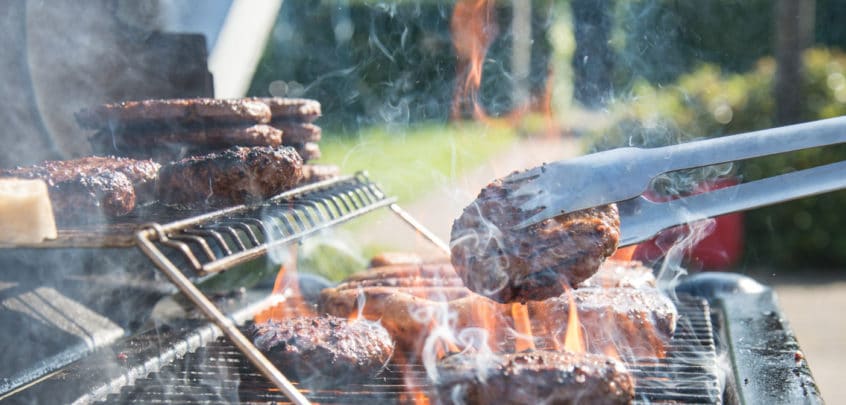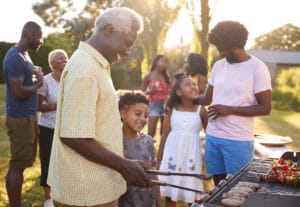Summer are here—Time for relaxing, traveling, and spending time outdoors with family and friends. Summer is also a great time to fire up the BBQ and grill up some delicious eats. It’s important to make sure that safe food handling practices don’t go on vacation this summer!
Follow these simple tips to prevent foodborne illness at your next cookout:
Thawing
The most important rule to follow for thawing potentially hazardous foods (meat, poultry, seafood) is to NEVER thaw food at room temperature! To safety thaw frozen food follow one of these safe methods:
- Thaw in the refrigerator
- Thaw in the sink under continuous running water
- Use the defrost setting on your microwave. Caution: foods defrosted in the microwave must be fully cooked immediately after
- For smaller portions of food, cook directly from frozen
Marinating
When marinating meats it’s important to remember to always leave the meat to soak in the marinade in the fridge. We should never let potentially hazardous foods sit on the counter for an extended period of time. Another consideration it that any marinade that has come into contact with raw meat is now considered contaminated with raw meat juice. This marinade should never be used on meat that has been cooked and or other ready to eat foods.
Cooking
When BBQing it’s important we thoroughly cook our meat to kill any pathogens that could cause food-borne illness. Always cook meat to the following internal temperatures:
- Poultry pieces or ground- 74 degrees Celsius
- Whole Poultry- 82 degrees Celsius
- Pork- 71 degrees Celsius
- Ground beef- 71 degrees Celsius
- Seafood – 74 degrees Celsius
- Fish- 70 degrees Celsius
- Beef steaks
- Medium rare: 63 degrees Celsius
- Medium 71 degrees Celsius
- Well done 77 degrees Celsius
To ensure the food is safe to eat, always verify that the food has reached the minimum temperature for at least 15 seconds by using a probe thermometer.
Note: when cooking, prevent cross contamination by ensuring that anything that touches raw meat or its juices (plates, knifes, tongs) is cleaned before using it for cooked meat.
Leftovers
It’s important that any leftover meat, poultry, seafood, and egg or dairy based salads be refrigerated immediately after your meal. This will minimize the amount of time the food spends in the danger zone and ensure the food will be safe to enjoy again tomorrow! If you are camping or at a picnic and you don’t have access to a fridge coolers work great. Just make sure you stock them with enough ice or ice packs to ensure that the foods never reach a temperature above 4 degrees Celsius.
For more information on safe food handling click here or call us at 519.355.1071 ext 2902


